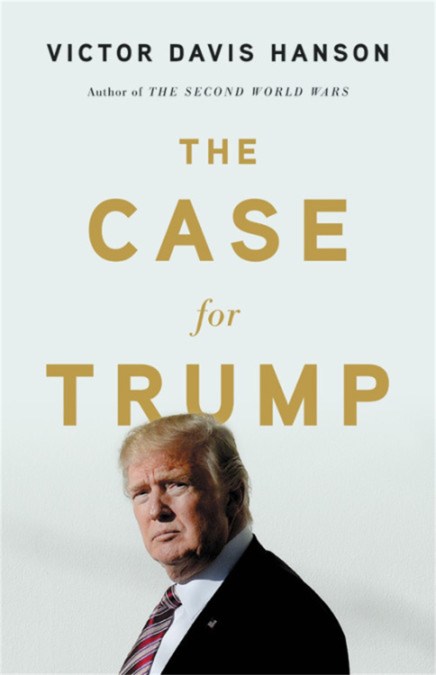In The Case for Trump, acclaimed historian and political commentator Victor Davis Hanson explains how a celebrity businessman with no political or military experience triumphed over sixteen well-qualified Republican rivals, a Democrat with a quarter-billion-dollar war chest, and a hostile media and Washington establishment to become President of the United States–and an extremely successful president at that. Hanson sets Trump in his broad political and social context to explain Trump’s and ongoing political appeal to a broad swath of American voters. Growing anger at globalization, a stalled economy, immigration, costly and unfruitful overseas interventions, perceived poor trade deals, and political correctness meant by 2016 that if there were not a loud Trump outsider, he would likely have had to be invented. Trump and Trump alone saw a political opening in defending the forgotten working classes of the interior, who were alienated not only by Democrats but by elite republican candidates. (In 2012, one Republican taxi driver explained his decision to sit out the election altogether: “Geez, Romney came to Michigan wearing his wing-tips with starched jeans!”)
And despite the apocalyptic imaginings of both the Left and the Never Trump Right, one year into his presidency Trump boasts an impressive record of achievement of a kind rarely attained by an incoming president. Trump has realized economic and foreign policy results not seen in a generation, cutting through stasis and dismantling a corrupt old order.
Hanson is not naïve about Trump’s self-destructive behavior (the relentless tweeting, the threats to fire Mueller and so on) but ultimately sees him as a kind of tragic political hero, something out a Sophocles play or an American Western. His accomplishments are a direct result of his personal excesses–the fact that he is not traditionally presidential has enabled him to bring long-overdue changes in foreign and domestic policy. We could not survive a series of presidencies as volatile as Trump’s, Hanson acknowledges. But “given the direction of the country over the last 16 years, half the population, the proverbial townspeople of the western, wanted some outsider, even with a dubious past, to ride in and do things that most normal politicians not only would not but could not do — before exiting stage left or riding off into the sunset.”
And despite the apocalyptic imaginings of both the Left and the Never Trump Right, one year into his presidency Trump boasts an impressive record of achievement of a kind rarely attained by an incoming president. Trump has realized economic and foreign policy results not seen in a generation, cutting through stasis and dismantling a corrupt old order.
Hanson is not naïve about Trump’s self-destructive behavior (the relentless tweeting, the threats to fire Mueller and so on) but ultimately sees him as a kind of tragic political hero, something out a Sophocles play or an American Western. His accomplishments are a direct result of his personal excesses–the fact that he is not traditionally presidential has enabled him to bring long-overdue changes in foreign and domestic policy. We could not survive a series of presidencies as volatile as Trump’s, Hanson acknowledges. But “given the direction of the country over the last 16 years, half the population, the proverbial townspeople of the western, wanted some outsider, even with a dubious past, to ride in and do things that most normal politicians not only would not but could not do — before exiting stage left or riding off into the sunset.”
Newsletter Signup
By clicking ‘Sign Up,’ I acknowledge that I have read and agree to Hachette Book Group’s Privacy Policy and Terms of Use

